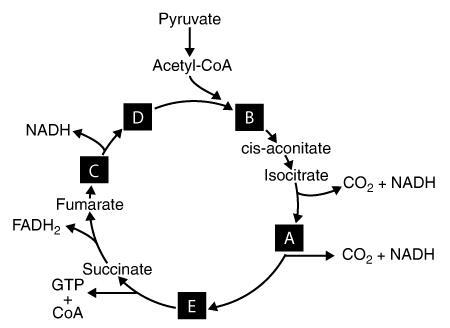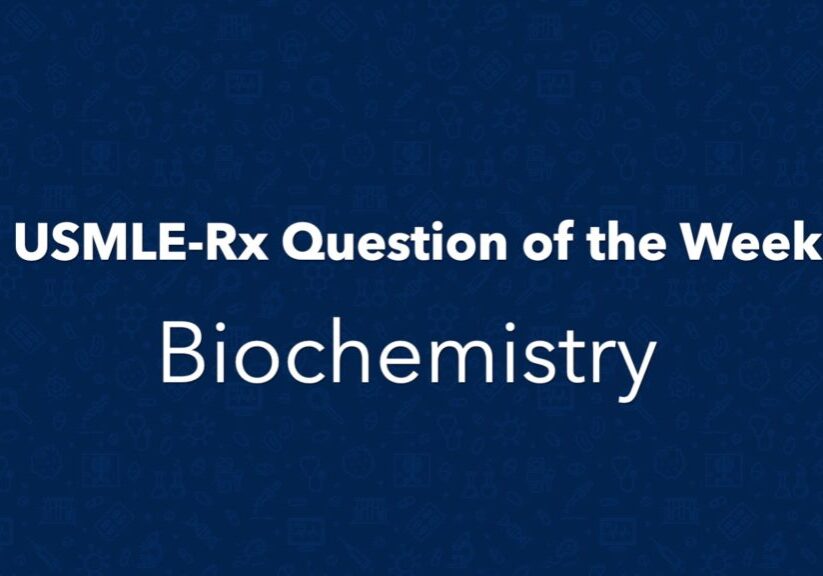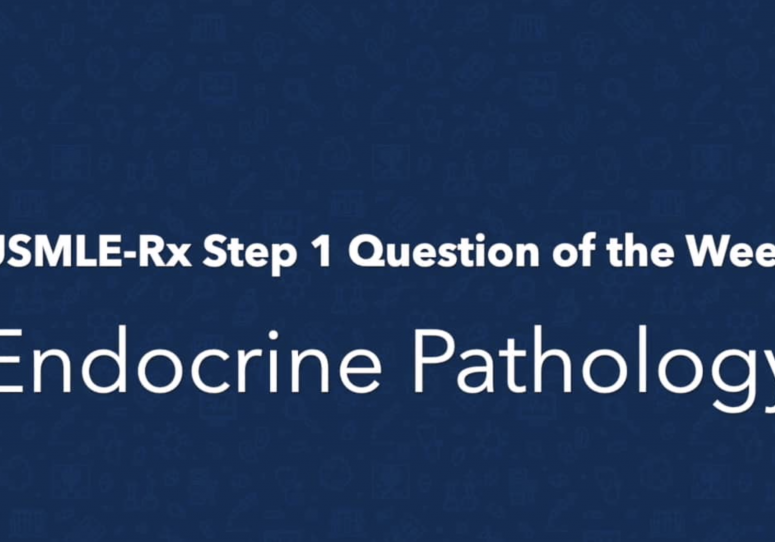Check out today’s Step 1 Qmax Question Challenge.
Know the answer? Post it below! Don’t forget to check back for an update with the correct answer and explanation (we’ll post it in the comments section below).
 A metabolic process is shown in the image.
A metabolic process is shown in the image.
Which intermediate in this process inhibits the rate-limiting enzyme of glycolysis and activates the rate-limiting enzyme of fatty acid synthesis?
A. A
B. B
C. C
D. D
E. E
———————–
Want to know the ‘bottom line?’ Purchase a USMLE-Rx Subscription and get many more features, more questions, and passages from First Aid, including images, references, and other facts relevant to this question.
This practice question is an actual question from the USMLE-Rx Step 1 Qmax test bank. For more USMLE Step 1 prep, subscribe to our First Aid Step 1 Flash Facts and First Aid Step 1 Express Videos video series. Score the best deal on all three products as a bundle with USMLE-Rx 360 Step 1.




B) Citrate
The correct answer is B. Citrate (B), formed from oxaloacetate and acetyl-CoA by the enzyme citrate synthase, inhibits phosphofructokinase and allosterically activates acetyl-CoA carboxylase. Phosphofructokinase is a key regulatory step in glycolysis, converting fructose-6-phosphate to fructose-1,6-bisphosphate. Inhibition of phosphofructokinase by citrate slows the production of acetyl-CoA, which is required for the production of citrate in the tricarboxylic acid cycle. Acetyl-CoA carboxylase is the key regulatory step in fatty acid synthesis; it converts acetyl-CoA to malonyl-CoA. Allosteric activation of acetyl-CoA carboxylase by citrate will increase fatty acid synthesis, because excess citrate indicates a high level of acetyl-CoA. Acetyl-CoA carboxylase is also inactivated by phosphorylation.
A is not correct. ?-Ketoglutarate (A) is not an important regulator of the tricarboxylic acid cycle, but it is an important intermediate in protein metabolism.
C is not correct. Malate (C) is not an important regulator of the tricarboxylic acid cycle, but it is important in the malate shuttle.
D is not correct. Oxaloacetate (D) is not an important regulator of the tricarboxylic acid cycle, but it is important in gluconeogenesis.
E is not correct. Succinyl-CoA (E) downregulates its own synthesis by inhibiting ?-ketoglutarate dehydrogenase, the enzyme responsible for dehydrogenation of ?-ketoglutarate.